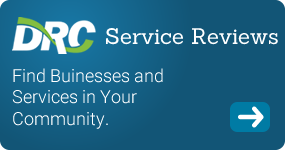
Teresa
- Published: 12 April 2016
First, get a recent exam from a psychologist (private or through the schools) that shows an IQ score and disability
diagnosis.
Then apply for a Waiver, which is a bundle of long term care supports designed to make the person with a
disability as independent and well-supported as possible while they reside in their community. Waiting lists for the
ID (Intellectual Disability) and DD (Developmental Disability) Waiver are long and these are the waivers with the most
supports. Get on the waiting list early!
2. Look into Recreation and Social Activities
We’re all happier when we have a place to exercise or have some fun. Explore your county’s therapeutic recreation
department as well as groups like Eddie’s Club, Special Olympics, and Best Buddies for options. Look into People
First/Toastmasters, a self-advocacy group run by The Arc of Northern Virginia where everyone learns to share their
story and grow their voice.
3. Transportation
Having great places to go doesn’t mean much unless you can get there. Look into Metro’s reduced fare or Metro
Access program, then apply for Taxi Access. If you receive Medicaid, a free program called Logisticare can provide
transportation to and from medical appointments.
4. Establish a Special Needs Trust
Consider setting up a Special Needs Trust which is a legal way to protect assets for a person with a disability without
disqualifying them from public benefits.
5. Look Into Public Benefits
If someone has Medicaid under age 21, they are eligible for a program called EPSDT (Early Periodic Screening, Diagnosis, and Treatment). This program can provide assistance for medical and non-medical needs.
Once a person with a disability is 18 year old, they should be eligible for SSI (Supplemental Security Income) through Social Security. They may also be eligible for SSDI, a disability based benefit. Once approved, the person should also apply for Medicaid.
*Note- someone at or near the poverty level can apply for SSI and Medicaid at any age.
6. Explore Early intervention Services
6. Explore Early intervention Services
All counties offer special support services to young children diagnosed with a disability. Call as soon as you know your child may have significant needs and ask about the services that may benefit them.
7. Explore Guardianship and Alternatives
If someone will need assistance in making safe and healthy decisions or managing resources, consider looking into guardianship or an alternative. All people gain legal rights at age 18, so a good time to start looking into these services is around age 17 years.
8. Plan for Transition
Aging out of the school system is a tough time as it seems like all mandated services end overnight. Prepare by getting a waiver (see #1 above), working with your local Department of Rehabilitation Services (DRS), hire a private job coach, and attending all transition fairs and information sessions you can. Plan early!
Alexandria- 703-960-3411
Fairfax- 703-359-1124
Arlington- 703-228-1413 (or 1416 or 1424)
9. Find Family Supports
Talk to other people with disabilities, other families, other siblings. You are not alone and some of the most helpful resources come directly from those who have come before you. Reach out to a local group to find someone who understands just what you’re going through. These groups include Jewish Social Services Agency (JSSA), Parents of Autistic Children (POAC), Autism Society of Northern Virginia (ASNV), Down Syndrome Association of Northern Virginia (DSANV), and the Sibling Leadership Network at The Arc of the United States.
10. Be an advocate
There are no voices more powerful in changing the world than the voices of a person with a disability and their family. By sharing your story and advocating for local, state, and federal resources you make the world a better place for everyone. You will help create the change we need to see in the world. Consider becoming a member of The Arc of Northern Virginia and join us in advocating for change. Your membership dollars fund free resources for families, trips to Richmond to advocate with legislators, and help support our ongoing programs.
The Arc of Northern Virginia § 2755 Hartland Road, Suite 200, Falls Church, VA 22043
This email address is being protected from spambots. You need JavaScript enabled to view it. § 703-208-1119 § www.TheArcofNoVA.org
Reprinted from the website of The Arc of Northern Virginia


